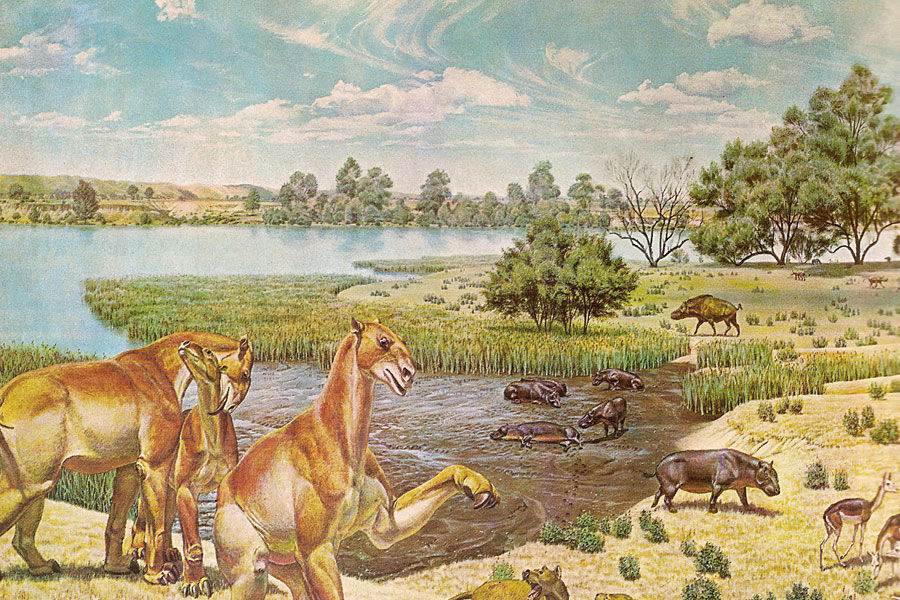(单词翻译:单击)
It has been suggested that the cyanobacteria at Shark Bay are perhaps the slowest-evolving organisms on Earth, and certainly now they are among the rarest. Having prepared the way for more complex life forms, they were then grazed out of existence nearly everywhere by the very organisms whose existence they had made possible. (They exist at Shark Bay because the waters are too saline for the creatures that would normally feast on them.)
据认为,沙克湾里的叠层石也许是地球上进化最慢的生物,也肯定是现在最稀有的生物之一。在为更复杂的生命形式创造条件以后,它们接着几乎在哪里都被别的生物挤出局,而那些别的生物的存在恰恰是它们使之成为可能。(它们之所以存在于沙克湾,是因为那里的水对于通常会吃掉它们的生物来说含盐量太大。)
One reason life took so long to grow complex was that the world had to wait until the simpler organisms had oxygenated the atmosphere sufficiently. "Animals could not summon up the energy to work," as Fortey has put it. It took about two billion years, roughly 40 percent of Earth's history, for oxygen levels to reach more or less modern levels of concentration in the atmosphere. But once the stage was set, and apparently quite suddenly, an entirely new type of cell arose—one with a nucleus and other little bodies collectively called organelles (from a Greek word meaning "little tools"). The process is thought to have started when some blundering or adventuresome bacterium either invaded or was captured by some other bacterium and it turned out that this suited them both. The captive bacterium became, it is thought, a mitochondrion. This mitochondrial invasion (or endosymbiotic event, as biologists like to term it) made complex life possible. (In plants a similar invasion produced chloroplasts, which enable plants to photosynthesize.)
生命为什么花了很长时间才复杂起来?原因之一是,世界不是不等待,直到简单的生物已经在大气里充入了足够的氧。“生物们不会鼓足干劲来干这活儿。”福泰说。花了大约20亿年,即大约40%的地球历史,大气里的氧浓度才大体上达到了现在的水平。但是,一旦条件成熟,显然是突然之间,一种崭新的细胞出现了——那个细胞里含有一个核和几个别的部分,统称“细胞器”(源自希腊语,意思是“小工具”)。据认为,该过程始于某个行为草率或敢于冒险的细菌。它不是受到了侵犯,就是被别的细菌俘虏。结果,双方都感到满意。据认为,那个被俘的细菌变成了一个线粒体。这种线粒体入侵(生物学家喜欢将其称做“内共生事件”)使得复杂的生命的出现成为可能。(植物方面,一次类似的入侵产生了叶绿体,使植物能进行光合作用。)


